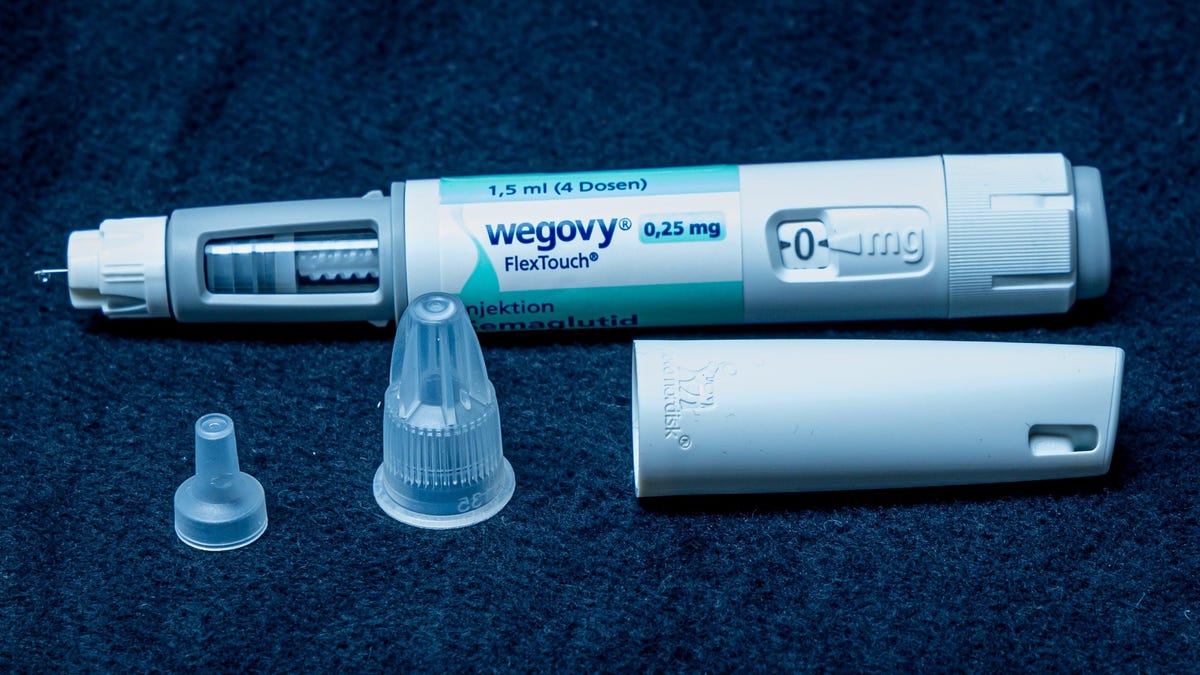
A popular class of weight loss drugs may offer more lasting success than assumed, new data from Epic Research suggests. The study of medical records found that a slight majority of people who took GLP-1 drugs like semaglutide either maintained or improved their weight loss in the year after they stopped using the medication. More than a third of former users did substantially regain much or all of their original weight, however.
Semaglutide mimics the natural GLP-1 hormone, which helps regulate our hunger and metabolism, particularly insulin production. It’s the active ingredient in type 2 diabetes medication Ozempic and the higher-dose obesity drug Wegovy (since Wegovy’s FDA approval in 2021, Ozempic has often been prescribed off-label for weight loss). In large-scale, randomized, and controlled clinical trials of Wegovy, people have lost an average 15% of their weight—far above the typical weight loss seen with diet and exercise alone or with older weight loss drugs.
Advertisement
These and similar drugs (such as Eli Lilly’s tirzepatide) have ushered in a new era of obesity treatment. Other research has started to show that these drugs may provide health benefits beyond weight loss, such as lowering the chance of heart attacks in high-risk groups and reducing unhealthy cravings for alcohol. But there have been lingering questions about their long-term impact on people’s weight and overall health. Clinical trial data has found, for instance, that people on average will regain much of their lost weight once they stop taking the medications.
Advertisement
Epic Systems produces software used by health care systems to create and maintain electronic medical records. One of its offshoots, the health analytics organization Epic Research, has been studying the real-world outcomes of GLP-1 drugs by looking at medical records. These records are obtained from Cosmos, a database representing over 200 million patient records collected from health care systems using Epic in the U.S. and Lebanon. A study from the organization last April, for instance, found that people taking the highest approved dose of semaglutide lost between 8% and 11% of their baseline weight within 60 weeks, a bit below the average weight loss seen in the clinical trials.
Advertisement
In their newest study, released Tuesday, Epic researchers analyzed what happened to around 20,000 patients who were prescribed semaglutide, lost at least 5% of their weight while on it, and then stopped taking the drug over the following year.
About 18% of these patients, they found, had regained all of their lost weight or even surpassed it within a year’s time. Another 26% of patients regained 25% or more of their lost weight. But around 56% of patients either maintained their weight loss (20% total) or continued to lose more weight, with 19% doubling the amount of weight lost by year’s end. The researchers also studied the outcomes of people who stopped taking liraglutide, an older and less effective GLP-1 drug, and found a similar pattern of weight changes unfold over 12 months.
Advertisement
These findings have not been vetted through the traditional peer-review process, so they should be viewed with more caution. But the paper authors say they divided themselves into two groups that ran their own separate analyses and found similar results. And the findings don’t necessarily conflict with older data.
Even the original clinical trials of these drugs did not show that everyone regains their weight after they stopped treatment, only that a noticeable amount of weight regain does occur on average (in one trial of semaglutide, for instance, participants on average regained two-thirds of their prior weight loss a year later). So, within this study population, there were almost certainly subgroups of people who didn’t regain much if any of their weight.
Advertisement
More research will have to validate the trends seen here. But the findings suggest that at least some people can successfully stop taking GLP-1s without losing the health benefits they provide. It might also mean that there are ways to improve the odds of sustained weight loss once the therapy is ended, such as through diet and exercise counseling. Many people require long-term medication to manage their chronic ailments, so there’s nothing inherently wrong with staying on these drugs either. But the high costs and limited insurance coverage of GLP-1s have made it hard for some people to continue affording them.
Services Marketplace – Listings, Bookings & Reviews